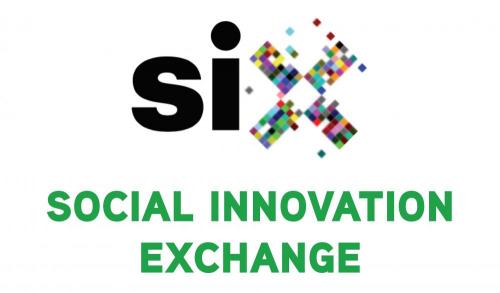During the final event leading actors in the social innovation sector spoke on the work universities are doing within the sector. Speaking at the panel event was Louise Pulford UK (Social Innovation Exchange - SIX), Marie Taylor (Social B) Ireland, Daniela Chavarria Devia (KINESIS) the Netherlands, Kuba Wygnański (Shipyard) Poland and Eoghan Mackie (Challenges Group) Scotland.
The conversation started with a discussion on whether universities are doing meaningful social innovation work. Lousie noted that there are new social innovation courses and departments popping up within universities around the world, across different disciplines, all the time, showing that there is an increasing appetite for the topic in both research and learning. However, there is room for improvement and growth - these often remain small departments, disconnected from other programmes in the university and not they are often not supported at an institutional level. Universities are institutions that have been around for hundreds of years and thus its ways of working sometimes doesn’t match up with the needs of modern society.
Whilst the SIKE project focussed on linking universities to the outside world, Louise also discussed another Erasmus+ project SIX is currently working on - VISION - looking at what universities can change from their approach to teaching in regards to teaching creativity, entrepreneurship and innovation. Some of the findings so far have shown that places of education need to adopt immersive and experiential learning, connecting students to communities through practice.
Emphasising the points Louise made, Marie went on to add that there is a gap in collaboration between universities and communities. Social B has found social enterprise provision was strong in Ireland and Scotland but it isn’t the same across Europe. Similarly to the VISION project, Social B have seen that there is a high demand for specific skills such as leadership and practical skills, and that a varied method of learning is very sought after. However, Marie noted there is a lack of skills being taught around training of sustainability and growth.
KINESIS (another Erasmus+ project) is exploring social innovation in shrinking villages. Daniela, Research Intern at the project, noted that universities can often treat communities like experiments. The aim of the project is to integrate students in the rural village they are studying - to go there, live with the people and exchange knowledge between the two. Universities must get better at taking students out of universities and get them to work with communities if they are serious about embedding social innovation in their practice.
Leading on from Daniela, Eoghan, from Challenges Group, spoke of his experience of innovation competitions within universities, from his experience of supporting social enterprises outside of universities. From his experience, he noted that universities are good at creating competitions that have no baseline and that are so out of context that they don’t hit reality. He also emphasised that the skills the students have need to be applied to actual issues that need innovation - bringing innovative ideas to an innovation enterprise is the key. The financing of innovation also needs to change and that must start at a university level onwards.
Following this thought process, Kuba from Shipyard spoke about the need for universities to get in touch with the social innovation happening now and what people are actually working on. There is lots of talk around the wants of social innovation which overlooks the actual needs of the movement and the communities they serve. “Universities in Poland are conservative and elitist. They are good for teaching but not so good for learning. At the moment we [Shipyard] are trying to get universities to stop and think about themselves and hack them in a positive way to create bridges with the social sector in a practical way.” Universities need to make sure they are doing the digging work, looking for those needs and not just the superficial wishlist. To start this, they should become more open and porous, creating better relationships with the community.
So, are universities getting social innovation work right?
There is a lot of inspiring work being done in many institutions around the world to embrace social innovation. Universities have a role too. During this conversation, it was clear to see that the EU is paying attention to how universities are becoming more open and building relations with their communities. In order to stay relevant, Universities cannot function in their own silo and they must focus on their power to help build a better society with communities.
About SIKE project
From 2017 the SIKE project is an Erasmus+ Knowledge Alliance project that has aimed to demonstrate the potential of universities to use their knowledge in order to affect social change in a direct and meaningful way. The Partners – leading socially innovative universities and experienced social innovation drivers from the UK, Germany, Portugal, Croatia and the Basque Country – have been in collaboration over the last three years to create an ecosystem that nurtures and supports sustainable, resilient and responsible innovation.
Introducing SIX
Introducing SIX | socialinnovationexchange.org
SIX is a social innovation exchange built on mutual value, relationships and knowledge. We work globally to facilitate purposeful cross-sector conversations, that challenge and inspire people to use innovation to increase social impact.
Our vision is that everyone can use innovation to grow social impact, and live the life they want to live.











Add new comment